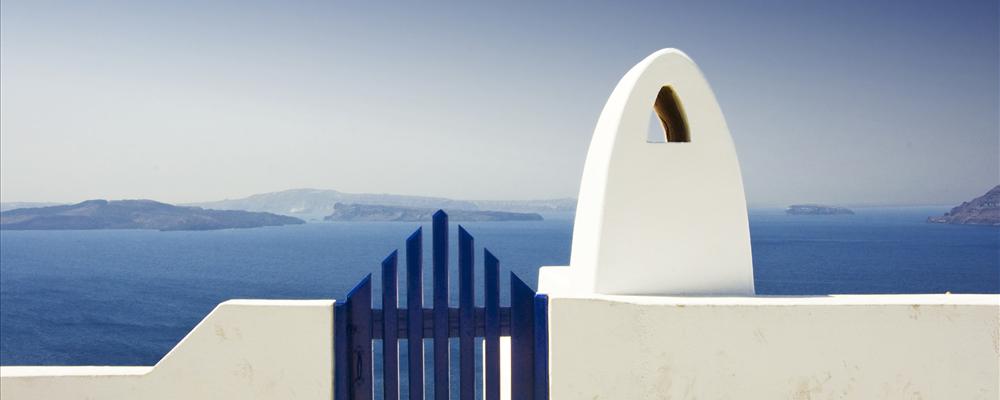
Greece
( 2 user reviews )Greece (Ελλάς, Hellas) is a country in Southern Europe, on the southernmost tip of the Balkan peninsula, with extensive coastlines and islands in the Aegean, Ionian, and Mediterranean Seas. It shares borders in the north with Albania, the FYROM, Bulgaria, and Turkey. It has an ancient culture that has had a significant influence on the arts, language, philosophy, politics, and sports of western society, including the genres of comedy and drama, western alphabets, Platonic ideals and the Socratic method, democracies and republics, and the Olympics. Furthermore it's a geographically appealing place to visit, with a mountainous mainland and idyllic island beaches.
Understand
Greece is one of the world's most popular tourist destinations, ranking in the world's top 20 countries. According to the Greek Ministry of Tourism, the nation received about 17 million visitors from January to mid August 2007, a large number for a small country of 11 million. Visitors are drawn to the country's beaches and reliable sunny summer weather, its nightlife, historical sites and natural beauty.
Over 90% of visitors who come to Greece come from other European countries, although in recent years there have been growing numbers of tourists from other world regions. The vast majority of visitors arrive during tourism season, which is April through October. Peak season is July through August, and most of the tourists and tourism industry are concentrated in Crete, the Dodecanese, Cyclades, and Western Greek Islands, and to a lesser extent: the Peloponnese, and the Halkidiki peninsula in Macedonia. There are still many rewarding areas in the country free of large-scale tourism.
Many first-time visitors arrive in Greece with specific images in mind and are surprised to discover a country with such regional and architectural diversity. The famous whitewashed homes and charming blue-domed churches only characterize a specific region of the country (the Cyclades Islands). Architecture varies greatly from one region to the next depending on the local history. Visitors will find Neoclassical architecture in the cities of Ermoupolis and Nafplio, Ottoman-influenced buildings in Grevená and Kozáni, whitewashed Cycladic homes on the island of Paros, and pastel-colored baroque homes and churches on Corfu. The nation's terrain is just as varied as its architectural heritage: idyllic beaches, towering mountain ranges, wine-producing valleys, vast stretches of olive orchards in the south, and lush forests in the north. Greece's historical sights are just as varied; the country is littered with just as many medieval churches and castles as classical ruins and temples.
History
Greece boasts a very long history, with the Greek language being present in the country for nearly 4,000 years.
First civilizations
The country's first inhabitants are now referred to as the Pelasgians. Little is known about them, but it is believed that they were a primitive people. The first advanced civilizations in Greece are known as the Cycladic in the Cyclades Islands, and the Minoan in Crete and Santorini. The Minoans had a written language which remains undecipherable to modern-day archaeologists. This is one of the most interesting and profound historical mysteries. It is a link to our modern civilization.
Dark Age
Greek-speaking Indo-European peoples arrived in the country from somewhere to the north, around 1700 BC, and slowly invaded the entire country from the north all the way to Crete, as well as the west coast of Asia Minor (now Turkey), absorbing the native peoples. Their arrival may have been responsible for ending the Cycladic and Minoan civilizations and brought the country into what is now referred to as the Dark Age of ancient Greece; although it is now understood among historians that civilization in Greece remained sophisticated and advanced during this time. The first Greek-speaking civilization, the Mycenean Civilization, centered in the Peloponnese region, was prominent during this time period.
Classical Greece
The rise of the Greek city-states occurred in the period 1200 to 800 BC and heralded the Golden Age of Greece, which lasted many centuries and spurred several scientific, architectural, political, economic, artistic, and literary achievements. Athens, Sparta, Corinth, and Thebes were the most prominent of the city-states (with Athens being the most prestigious), but there were several other advanced city-states and colonies that had developed across the Aegean basin. Greek settlements were also established in southern Italy and other coastal areas of the Mediterranean colonized by Greeks. The legacy of Greek Civilization from this time period made a major impact on the world and continues to influence us to this day.
Hellenistic and Roman eras
The epicenter of Greek Civilization shifted, during the 4th century BC, from southern Greece to northern Greece. The northern Macedonian kingdom, under Alexander the Great, conquered all of Greece, and proceeded eastward, creating an empire all the way to South Asia with the stated intent of spreading Greek Civilization. The empire broke up after Alexander's death, and Greece was eventually annexed by the growing Roman Empire. Although weakened politically, Greek Civilization continued to flourish under Roman rule and heavily influenced Roman culture.
Arrival of Christianity and rise of Byzantine Empire
Christianity arrived in Greece with the preachings of St. Paul during the 1st century AD, and eventually spread throughout Greece and the Roman Empire. In the 4th century, Roman Emperor Constantine the Great legalized Christian worship and declared it the state religion of the empire. He moved the capital of the empire from Rome to Byzantium (present-day Istanbul), which he renamed Constantinople. Internal divisions eventually divided the Roman Empire into a western half (the West Roman Empire) and an eastern half (East Roman Empire.) The West was eventually invaded and sacked by invaders from northern Europe, while the East survived for another millennium as the Byzantine Empire with Constantinople as its capital.
Medieval Greece
Greece's medieval history is dominated by the Byzantine Empire which revolved around Christianity, Greek Language and Civilization, and Roman law. It was a powerful force in the Mediterranean basin for centuries, engaging in trade, politics, and the spread of Christianity. The empire collaborated with Rome during the Crusades against the Muslims. However, during the 13th century, the Crusaders turned on the Byzantine Empire itself and sacked Constantinople. With a weakened Byzantine Empire, Frankish and Latin invaders arrived and occupied various parts of Greece. Over the following centuries, the Byzantine Empire began to regain strength and reconquer lost territory, but received a final blow in the 15th century when a growing Ottoman Turkish Empire to the east conquered Constantinople.
Ottoman rule
With the sacking of Constantinople, Greece fell under Ottoman Turkish rule, but vigorously retained its Greek-speaking Christian culture. However, many Greeks fled the country, establishing Greek communities elsewhere in Europe; these communities would later influence the Greek Revolution.
Enlightenment and revolution
The Italian city-states of Genoa and Venice competed with the Ottoman Turks for control of various areas of Greece and managed to conquer various islands and coastal areas, bringing pan-European movements such as the Rennaissance (and later the Enlightenment) to places in Greece such as Crete, Corfu, and parts of the Peloponnese region. In the 18th century, the Enlightenment, both in Venetian/Genoese-occupied areas of Greece and from Greek communities abroad, led to an awakening among prominent Greeks and gave birth to the goal of an independent, unified, and sovereign Greek state. The Greek Revolution finally broke out on the 25th of March, 1821, and led to a long war against the Ottomans for independence. The Greek Revolution gained attention across Europe, with Russia, Britain, and France sending military aid to assist Greece.
19th Century to Mid-20th
The nation finally achieved its independence from the Ottoman Empire in 1829. The newly-independent Greek State was briefly a republic, before becoming a monarchy at the will of major European powers. During the second half of the 19th century and the first half of the 20th century, Greece gradually annexed neighboring islands and territories with Greek-speaking populations. The country sided with the allies during WWI. Despite declaring neutrality during WWII, the country was invaded by Mussolini's military in 1941. Greek forces victoriously pushed the Italians out of Greece, but the Germans then came to their aid, occupying the country until its liberation toward the end of the war. Civil war broke out in 1946 between communist rebels and royalists, the former supported by Yugoslavia (until the Tito-Stalin rift of 1948) and the latter by the West. The communist rebels were defeated by the royalists in 1949. WWII and the civil war that followed had left the country war-torn, forcing many people to flee the country in search of a better life abroad.
Greece joined NATO in 1952; rapid economic growth and social change followed. A right-wing military dictatorship staged a coup in 1967, disbanding all political parties, suspending political liberties and forcing many prominent Greeks into exile, including Communists, which played an active part in the Greek Parliament before and after the junta. King Constantine II and his family also fled the country. Democracy returned in 1974, and a national referendum abolished the monarchy, creating a parliamentary republic.
Modern Greece
Greece joined the European Community or EC in 1981, which later became the European Union (EU) in 1992. The country's tourism industry which had begun to take off during the 1960s, began to flourish, bringing 5 million annual visitors to the country in 1980 (a figure that will eventually grow to over 17 million by 2007). The country suffered serious economic stagnation in the 1980s, but began to experience remarkable economic growth in the 1990s, fueled by heavy investment, entrepreneurship, trade, and EU aid. By the early 21st century, the Greeks have achieved a stable and prosperous nation, with a high standard of living. An influx of immigrants began in the late 1980s, transforming Greece, once an immigrant-sender, into an immigrant-receiving country. Foreign-born residents, most of them undocumented and coming from various parts of the world (Eastern and Central Europe, Middle East, South and Southeast Asia, and Africa) are estimated to number at least 1 million, or equivalent to 10% of the population. In 2004, the nation stepped into global spotlight as it successfully hosted the Summer Olympic Games in Athens, to the defiance of critics.
Climate
Despite its small size, Greece has a varied climate.
Most of the country, including all coastal areas, enjoys a so-called Mediterranean climate, almost identical to much of California. Summers are hot and dry with a 7-month period of near-constant sunshine generally from April until November. The remainder of the year is characterized by a relatively cold, rainy period which generally starts sometime in November and lasts until late March or early April. Sporadic rains do occur during the dry season, but they tend to be rare, quick showers. The country’s Ionian Coast and Ionian Islands tend to receive more annual precipitation than the rest of the country. The islands in the southern Aegean and parts of the southeastern mainland are the driest areas of the country.
The most pleasant weather occurs in May-June and September-October. The warmest time of the year starts in mid-July and generally lasts until mid-August, when the annual meltémi winds from the north cool the country. Mid-July to mid-August is the height of summer, and the midday sun tends to get very strong; during this time, most Greeks avoid heavy physical activity outdoors between 1:00 and 5:00 PM. It is best advised to get in tune with the local way of life by waking up early, doing all sightseeing and errands in the cool morning hours, and then spending the afternoon in the relaxing shade or at the beach. In fact, the bulk of tourists arrive in Greece during the height of summer, to do just that! For visitors from more northerly climates, the off season from November through February can be a rewarding time to see Greece. It will not be beach weather, but temperatures are mild. The much added bonus is that there will be very few other tourists and reduced prices.
Summer evenings tend to be very rewarding. As strong as the sun may get on a summer afternoon, the low levels of atmospheric humidity in most areas of the country prevent the air from trapping much heat, and temperatures tend to dip to very pleasant levels in the evenings. But even during midday, high temperatures actually tend to be quite comfortable as long as the time is not spent doing a lot of walking or other physical activity. (Athens, however, can still be uncomfortably warm during summer afternoons due to the predominance of concrete in the city, an effect similar to New York City.) Coastal areas near open waters (away from tightly-closed bays and gulfs) especially on many of the islands, tend to be quite breezy, and can be quite cold at night.
While the Mediterranean climate characterizes most of the country, there are two other climate systems that are present. One is the cool Alpine climate which is found on mountainous areas of the country's interior, including many high-altitude valleys. Another system is the Continental climate found on the interiors of north-central and northeastern Greece, and gives those areas very cold winters and warm, relatively humid summers.
Holidays and festivals
The following are national public holidays:
-
New Year's Day - January 1
-
Epiphany - January 6
-
Shrove Monday (First day of Lent) - movable
-
Independence Day and '''The Annunciation - March 25
-
Good Friday - movable
-
Easter -movable
-
Easter Monday - movable
-
May Day / Labor Day - May 1
-
Pentecost Monday - movable
-
Assumption of Our Lady - August 15
-
WWII Day / "OXI Day" - October 28
-
Christmas - December 25
-
Saint Stephen's - December 26 The nation's three most important holidays are Christmas, Easter, and the Assumption. Christmas tends to be a private, family holiday, but lights and decorations adorn city squares across the country. Assumption Day is a major summer festival for many towns and islands. Easter weekend is perhaps the most flamboyant of all holidays; religious processions on Good Friday and the following Saturday evening culminate in exuberant fireworks at midnight, Easter morning.
Although not an official holiday, pre-Lenten carnival -or apókries- is a major celebration in cities throughout the country, with Patras hosting the country's largest and most famous events. Carnival season comes to an extravagent ending the weekend before Lent begins, with costumes, float parades, and various regional traditions.
In addition to nation-wide holidays and celebrations, many towns and regions have their own regional festivals commemorating various historical events, local patron saints, or wine harvests.
Contrary to most national holidays in other countries, Independence Day in Greece is a very sober holiday.
Note that the method used by Greek Orthodox Church to determine the dates for Holy Week and Easter are different than that used by the Protestant and Roman Catholic Churches. Therefore, Greek Orthodox Holy Week and Easter usually fall on a slightly later date than their Protestant and Roman Catholic counterparts, but they do frequently coincide (as was the case for 2007).
Regions
The following divisions reflect the approach to the country which will be taken by most travelers in deciding where to go. Articles within these five sections will be arranged with a view to enabling travelers to sort out which specific destinations best match their interests.
- Attica -
- The Peloponnese -
- Greek Islands -
- Crete -
- Central and Northern Greece -
Cities
Major cities include:
Major destinations
Here is a quick list of the most popular destinations:
-
Athens - capital, acropolis, major museums and many nearby sites
-
Corfu - large island with many attractions
-
Crete - island with varied attractions
-
Delphi - site of the famous oracle of Apollo, major archeological site
-
Meteora - hilltop monasteries
-
Ithaca - famous home of Odysseus and the greek gods
-
Mount Athos - semi-independent ecclesiastical republic
-
Mykonos - world famous sophisticated vacation center
-
Olympia - sanctuary dedicated to Zeus, site of the ancient Olympics
-
Rhodes -island with ancient monuments, as well as beaches
-
Santorini - great natural wonder and Greece's major honeymoon destination
-
Skiathos -the pearl of the Aegean,the most green little island with 68 great beaches
Getting there
Passport and visa requirements
Greece is both a member of the European Union (EU) and the European Economic Area (EEA). All EU nationals (including citizens of new member states) may enter Greece with a valid national ID card; this includes non-member states affiliated with the European Union, such as Monaco and Andorra. Citizens from EEA states that are not members of the EU (such as Switzerland, Norway, and Iceland), may also enter Greece with a valid national ID card.
A valid passport is required of all non-EU and non-EEA nationals, and most are also required to obtain a visa. Citizens of select countries, including Argentina, Australia, Canada, Chile, Croatia, Hong Kong SAR, Israel, Japan, South Korea, Malaysia, Mexico, New Zealand, and the United States, are allowed a 90-day visa-free stay, with the limitation that the cumulative stay in the Schengen Area in a 180-day period cannot exceed 90 days. Citizens of Brazil and Uruguay are allowed a 60-day visa-free stay. For the most recent information on entry requirements, contact your nearest Greek consulate.
Greece is a signatory of the Schengen agreement along with Austria, Belgium, Czech Republic, Denmark, Estonia, Finland, France, Germany, Hungary, Italy, Iceland, Latvia, Lithuania, Luxembourg, Malta, Netherlands, Norway, Poland, Portugal, Slovakia, Slovenia, Spain, Sweden, and Switzerland. There are no passport checks when traveling between any two Schengen countries. A non-Schengen national who plans on visiting multiple Schengen countries -and who needs a tourist visa to visit them- may do so on a visa endorsed as valid for "Schengen States" from one Schengen country; but he is best advised to specifically obtain the visa for the first country he will be visiting.
For detailed regulations applied to your country, refer to Greek Ministry for Foreign Affairs .
By plane
Athens' Elefthérios Venizélos International Airport located near the Athens suburb of Spáta is the country's largest, busiest airport and main hub, handling over 15 million passengers annually as of 2006. Other major international airports in terms of passenger traffic are, in order of passengers served per year, Heraklion (Nikos Kazantzákis Int'l), Thessaloniki (Makedonia Int'l), Rhodes (Diagóras), and Corfu (Ioánnis Kapodístrias).
Athens and Thessaloníki handle the bulk of scheduled international flights. However, during tourism season, several charter and planned low-budget flights arrive daily from many European cities to many of the islands and smaller cities on the mainland.
Olympic Air (Previously Olympic Airlines) , was the nation's flag carrier, offering services to Greece from several cities in Europe, the Middle East, Southeast Asia, and North America. Currently is a private company owned by Marfin Investment Group Aegean Airlines , which owns half the the domestic market and is generally a much better option than Olympic, also operates a number of international routes to Greece from various European cities. Athens is also well-served by airlines from all over Europe, the Middle East, North America, and Southeast Asia, with flights to their respective hubs.
The presence of low-cost carriers in Greece's international market has increased tenfold within the past decade, offering service to Athens and Thessaloníki from several other European locations, such as Easyjet (from London Gatwick, London Luton, Manchester, Milan, Paris and Berlin), Virgin Express (flying from Brussels), Transavia (Amsterdam), German Wings (Cologne/Bonn and Stuttgart), Hemus Air (Sofia), Sterling (Copenhagen, Stockholm, Gothenburg and Oslo), LTU (Düsseldorf), MyAir (Venice), Norwegian Air (Warsaw, Katowice and Krakow), Wizzair (Katowice and Prague), FlyGlobeSpan (Glasgow), Clickair (Barcelona) and Vueling (Barcelona).
By train
Thessaloniki is Greece's hub for international rail service. Trains connect Thessaloníki to Sofia (3 daily), Bucharest (1 daily), Budapest (2 daily), Istanbul (2 daily), Beograd via Skopje (2 daily), and other international cities. In summer there are direct services to Praha, Bratislava and Moskava. There are special fares as Rail travel in Europe and other offers e.g. the City-Star Ticket form Czech Republic to Greece.
By car
Greece can be entered by automobile from any of its land neighbors. From Italy, ferries will transport cars to Greece. From western Europe, the most popular route to Greece was through Yugoslavia. Following the troubles in the former Yugoslavia during the 1990s, most motorists from western Europe came overland by Italy, and then took a trans-Adriatic ferry from there. Although the countries of the former Yugoslavia have since stabilized, and Hungary-Romania-Bulgaria form another, albeit a much longer, alternative, the overland route through Italy now remains the most popular option.
By bus
There is some, albeit limited, international bus service to neighboring Albania, Bulgaria, and Turkey, as well as Georgia.
By boat
From Italy, several ferries depart for Greece daily. Ferries to Patras (Pátra), Igoumenítsa, and Corfu (Kérkyra) leave throughout the year from the Italian port cities of Venice, Trieste, Ancona, Bari and Brindisi.
From Turkey there are ferries: from Marmaris to Rhodes, from Cesme to Chios, from Bodrum to Kos, from Kusadasi to Samos, From Cesme to Ancona or Brindisi.
There are also ferries connecting Piraeus and Rhodes to: Alexandria, Egypt; Larnaca and Limassol, Cyprus; and Haifa, Israel.
See Ferries in the Mediterranean
Traveling around
General considerations
A frequently asked question of travelers in Greece is whether they should rent a car. The primary advantage of having a car is that you can cover a lot more ground per day if you're traveling in rural areas or on the larger islands: you can get almost anywhere in Greece by bus, but some isolated villages may only have one or two buses per day, and having your own car means you don't have to wait in the summer heat for the bus to come. Almost all archeological sites are accessible by bus, but at some of the more remote, less famous, sites, the bus may drop you off up to a mile away from the site, while with a car you can almost always get right to the site via at least a rough road.
On the other hand, going car-free in Greece is not only possible, but offers significant advantages, while driving involves a number of disadvantages. Though many people find driving in Greece easy and even pleasant, others are concerned by the high accident rate (one of the highest in Europe), the national reputation for risky driving, and the presence of many twisty mountainous roads, sometimes hugging the side of a cliff. Gas is as expensive as anywhere. (For more on driving conditions in Greece see below.) Driving in Athens and other big cities can be a frustrating, and sometimes hair-raising, experience, and finding parking can be very difficult. And having a car greatly restricts your flexibility when island-hopping, since only the larger, and usually slower, ferries offer car transport, which must be paid for in addition to your passenger ticket. Traveling by bus is not only cheaper but offers a greater chance of striking up conversations with both locals and other travelers than going by car. Language is not usually a problem for English speakers in using public transit: wherever there is significant tourism in Greece bus schedules are posted in English, and bus drivers and conductors, as well as taxi drivers, will understand at least enough English to answer your questions
Public transit can be supplemented by taxis (see below), which in many places, especially the islands, offer fixed rates to various beaches, which can be affordable especially if the price is shared among several people. And on many islands it's possible to get places by walking, which can be a pleasant experience in itself.
By bus and train
Intercity buses are a very popular option for domestic travel. KTEL is the national government-subsidized network of independent businesses which cooperate together to form a dense route system serving almost the entire country. The system is efficient, reliable, and relatively inexpensive. It serves both long and short distances, including routes from major cities to islands near the mainland, such as Corfu and Cephalonia (in such cases, the ferry crossing is included in the price of the bus ticket).
Trains are a better and inexpensive way to get around, but the national rail system ( OSE ) is extremely limited. This is due to neglect after the arrival of large scale automobile use and air travel, and also due to past technological difficulties in surmounting the country's difficult terrain. The importance of rail travel is now being rediscovered, and the national rail network is currently under major renovation. The project's completion is still a long way off, but visitors can already benefit from the first sections of the modernized rail system that have been inaugurated. An entirely new suburban/regional rail system, the Proastiakos, was opened in 2004 serving Attica and adjacent regions and is under further expansion. There has also been extensive (and continuing) modernization of the Athens-Thessaloníki (tickets from 15 EUR 2nd class) corridor, with travel times being slashed.
By car
Exploring the country by automobile can be an extremely rewarding experience, allowing you to explore the incredibly scenic and varied terrain of the country's coastlines, interior, and islands, at your convenience. However, Greece does have a relatively high road fatality rate, among the highest in the European Union. Many Greek drivers tend to drive aggressively, and the nation's topographic reality poses challenges by forcing many narrow roads in mountainous regions to take several twists and turns. On the plus side, the road fatality rate has been steadily declining as a result of government campaigns, tougher policing, and lawmaking.
Roads are usually well-marked and well-maintained, and billions of Euros are being poured into expanding the nation's network of multi-lane freeways. Because of the rapid expansion and improvement of the nation's road system, it is advised to have the most updated road map(s) possible. Many of the newer motorways are toll roads, and fees can be expensive. Road signs in Greek are usually repeated with a transliterated version in the Latin alphabet.
For those used to driving in North America, secondary Greek roads, particularly in towns and villages, can seem surprisingly narrow. If cars meet on a narrow stretch of road it is customary for one driver to find a spot to pull over and let the other driver pass. At times, one driver will need to back up for the other. Adherence to this practice is expected and failure to do so will bring the ire of your fellow drivers. Because of this, and also because there are often pedestrians in the roadway, drive slowly through villages and small towns.
Another major difference between driving in North America and Greece is the range of speeds at which vehicles travel, particularly on the highways. While speed limits are as high as 120 kph (75 mph), some vehicles will be traveling as slowly as 60 kph (40 mph). Other vehicles will travel at speeds well in excess of the posted limits and can come up from behind very quickly. It is advisable to drive in the left-most lane only to pass slower vehicles.
Automobile rental agencies are present throughout the country, especially in major cities and in highly touristed areas. The automobiles offered are overwhelmingly manual transmission; automatics do exist, but it is advised to reserve one in advance. Gasoline/petrol prices are steep, but relatively inexpensive in comparison with many other EU countries. Some automobile rental agencies and insurance policies do not allow taking the car out of the country.
Drivers who do not hold an EU driver's certificate must carry a international driver's permit obtained in their home country. This may not be required when renting a car, but will certainly be required if involved in an accident or pulled over by the police for a traffic citation. Insurance policies may be void if the driver is a non-EU driver without an international permit.
By ferry
The frequency, reliability and availability of Greek ferries are largely dependent upon the time of year. For instance, during the winter off-season (January to March), the weather on the Aegean can be extremely rough and boats are often kept in port for days at a time. This type of delay is extremely unpredictable (it is not a decision of the ferry companies, but rather, that of the port authority) and determining when a harbored boat will actually set sail is near impossible. Therefore, travellers in off-season should build some flexibilty into their schedule and not plan on departing an island in the morning and catching a flight home in the afternoon. On the opposite end of the spectrum, ferries in August fill up due to the National Holiday (Aug 15), so travelers should plan ahead.
As for routes, during high-season there are extensive connections from Athens and quite a few in-between islands for "hopping." Again, in the winter, some of these ferries run once, maybe twice a week.
Visitors to Greece planning to travel by ferry should be aware of some potential complications. First, it can't be assumed that you can get from any given island to any other island every day of the week. The Greek ferry system is basically a hub-and-spoke system, with the spokes radiating from Piraeus out to the various island groups. As a result, boats within the groups are fairly frequent, but less so between the groups. Sometime islands which are geographically close together are in different groups: for instance, the Western Cyclades (Serifos, Sifnos, Milos) look very close on a map to the Central Cyclades (Naxos, Paros, Mykonos,) but these groups are on different spokes, meaning you can usually in summer get from one island to another in the same group on any day, but boats between the groups, e.g. Naxos to Sifnos, may be significantly less frequent. Second, trying to find advance information on ferry schedules can be frustrating: unfortunately there exists no single official comprehensive source for Greek ferry schedules either in print or on line, though there are a number private sites run by travel agents or other businesses which claim to give comprehensive schedules, and many of the individual ferry companies have web sites giving their schedules, in some cases offering the ability to book and pay for tickets on line. (Ferry schedules are also always posted at the boat ticket offices in departure ports.) Next, though getting a ticket usually isn't a problem, some boats to the most popular destinations, especially those leaving at the most convenient times, do sell out in high season or on holiday weekends. Finally, though ferries nowadays usually run on schedule, weather, strikes, and mechanical breakdowns still can occasionally delay them. None of these problems are insuperable, but they do mean you shouldn't try to micromange your ferry itinerary too strictly in advance: be flexible, and always have a backup plan. And it's always a good idea not to count on taking a ferry from the islands to get back to Athens the same day your plane leaves, even if boat schedules theoretically should enable you to do this: this will probably work, but there's enough of a chance it won't to make it prudent to plan on getting back to Athens at least one day before your flight.
There are three ports in Athens: the main port Piraeus and outlying Rafina and Lavrio port. These serve all islands, but central Cyclades islands such as Tinos, it is better to leave from Rafina.
Typical travel times, slow boat from Piraeus: Athens-Paros = 4 hours, Athens-Mykonos = 5.5 hours, Athens-Santorini = 8 hours, Athens-Heraklion = 9 hours,
Ferries are about the one thing in Greece that leave on time so be prompt. New "fast ferries" are cutting distance times in half but prices are slightly more expensive. Sometimes, it is more practical to fly, especially to Crete or Rhodes. However, flights are usually more expensive. Santorini is 8 hour slow boat from Athens but the entrance view from the boat is spectacular.
The major ferry companies operating in Greece include:
Agoudimos Lines (International and Greek Islands)
ANEK Lines (Crete and international)
Blue Star Ferries (Italy-Greece and Aegean Islands)
Hellenic Seaways (Aegean Islands)
Minoan Lines (Italy-Greece and Crete)
SAOS Ferries (Aegean Islands and northern mailand)
Superfast Ferries (Italy-Greece)
Ventouris Ferries (Italy-Greece)
Schedules and web sites for some very local ferry services may be found on the destination pages for the relevant islands or ports.
Though this guide usually doesn't list transportation web sites unless they're run by a government or by a primary transportation provider (like the shipping companies listed above), because of the great interest in Greek ferry schedules and the fact that there's no single official source for them, in this case readers are referred to the comprehensive Greek ferry schedule sites at Greek Travel Pages and OpenSeas .
See also Continental Greece in ten days
By plane
The nation's domestic air travel industry is dominated by state-owned Olympic Airlines and its growing competitor, Aegean Airlines . Both airlines offer an extensive route network within the country, including service connecting several islands to the mainland.
Aegean Airlines and more recently, Olympic Airlines offer E-tickets, which only exist as an e-mail or a web page with booking confirmation. It should be provided printed at the check-in desk at the airport (no need to visit airline office).
By taxi
There are many taxis in Greece, but in the large cities, Athens in particular, getting one can be quite a challenge! Taxi drivers are known for being quite rude and not taking you if they feel like it. You hail taxis like in any other large city, but in Athens many taxis will refuse to take you if they don't like your destination. If you need a taxi during rush hour, it can be next to impossible to find one going outside the perimeter of Athens(they all say they are going home, or worse, they ignore you). If you want to go to a beach in the southern suburbs such as Glyfada, what I have found helpful in a moment of desperation is to find a hotel and get a taxi from there, much easier. A word about luggage and transport from the airport. Most taxis will not take more than three people but will load their trunks with luggage hanging out if need be since the cars can be very small. If you need a taxi from the ferry at night from Pireaus, well all I can say is good luck. The drivers who wait outside are looking to take at least three different individuals going in the same direction so they can charge three fares! I found if you are two or three people, only one person should hail the cab and then if he agrees to take you, have the other(s) jump in. The taxi situation has improved since the Olympics when they retrained all the drivers to be more polite, but getting a cab in Athens can still be a real pain in the neck!
Talk
Greek is the national official language and is the native tongue of the vast majority of the population, but the English speaking visitor will encounter no significant language problem. English is the most widely studied and understood of foreign languages in Greece, followed by French, Italian, and German. Basic knowledge of English can be expected from almost all personnel in the tourism industry and public transport services, as well as most Greeks under the age of 40. However, learning a few Greek terms, such as "hello" and "thank you" will be warmly received.
The Latin and Cyrillic alphabets were derived from the the Greek alphabet and about half of Greek letters look like their Latin counterparts, and most Greek letters resembles their Cyrillic counterparts. With a bit of study it's not too hard to decipher written names, and common terms such as "hotel", "cafeteria", etc. And you'll find that place names on road signs throughout the country are often transliterated into Latin letters (some signs, especially on the newer roads, are even outright translated into English).
Money
Greece's official currency is the Euro (€), which replaced the drachma in January 2002.
Currency exchanges are common particularly in larger cities and in any touristed area. In addition to hard currency, they also accept traveler's checks. There are also automated currency exchange machines in some areas of the country, particularly at Athens airport. Most banks will also exchange euros for some currencies -such as the US Dollar and British Pound- often times at better rates than currency exchanges. Banks' commission fees for these exchanges are usually structured so that it's more economical to change larger sums than smaller. Usually, only the larger, international-standard hotels will exchange money for their guests.
As of this writing, branches of the Greek bank Alphabank will exchange US$ American Express Travelers Checks into Euros at their usual bank rates without fee or commission, which can result in a significant savings. They also cash Euro American Express Travelers Checks without charge.
When changing money in large amounts at a bank or currency exchange, it's a good idea to ask for mostly smaller notes, and nothing larger than a € 50. Many businesses are reluctant to accept notes of larger than € 50, partly because of a scarcity of change, partly because larger notes have a history of being counterfeited.
You may get better exchange rates by using credit and ATM cards. Mastercard, Visa, and Eurocard are widely accepted across the country in retail stores, hotels, and travel/transportation agencies (including ferry, airline, and car rental agencies), but are not accepted at some restaurants. Local souvenir shops usually require a minimum purchase before allowing you to use your card and may not accept it for special sales or deeply discounted items. ATM machines are present almost everywhere, with Mastercard/Cirrus and Visa/Plus being the most widely accepted cards. Many ATM machines may not accept 5-digit pin numbers; ATM card-users with 5-digit pins are advised to change their pin to 4 digits before leaving home.
Value Added Tax (VAT) is charged on most items, usually included in the item's price tag but some shops offer "Tax Free" shopping to non-EU residents. This means that non-EU residents can ask for a VAT refund at their port of exit in the EU. Be sure to ask for your voucher before leaving the store and show that along with your items to the customs officer upon departure from the EU.
Bargaining
But for minor exceptions (like the Athens Monastiraki district), bargaining is considered unpolite and it is quite ineffective.
Eat
Greek cuisine is a blend of indigenous traditions and foreign influences. Neighboring Italy and Turkey have left a major impact on Greek cuisine, and there are shared dishes with both of these nations. The traditional Greek diet is very Mediterranean, espousing vegetables, herbs, and grains native to the Mediterranean biome. Being a highly maritime nation, the Greeks incorporate plenty of seafood into their diet. The country is also a major producer and consumer of lamb; beef, pork, and especially chicken are also popular. Olive oil is a staple in Greek cooking, and lemon and tomatoes are common ingredients. Bread and wine are always served at the dinner table.
The cuisine in Greece can be radically different from what is offered in Greek restaurants around the world. Greek restaurants abroad tend to cater more to customer expectations rather than offer a truly authentic Greek dining experience. One example is the famous gyros (yee-ros), a common item on Greek menus outside Greece. While it is a popular fast-food item in Greece today, it is actually a relatively recent foreign import (adapted from the Turkish döner kebap) and is considered by Greeks as junk food. It is never served in the home and is generally not found on the menus of non-fast-food restaurants.
Eating out is Greece's national passtime and a rewarding experience for visitors; however, not knowing where to go or what to do can dampen the experience. In the past, restaurants that catered mostly to tourists were generally disappointing. Thankfully, the nation's restaurant industry has grown in sophistication over the past decade, and it is now possible to find excellent restaurants in highly-touristed areas, particularly areas that are popular with Greek tourists as well. Thus, it remains a good idea to dine where Greeks dine (Go search them at the times greeks dine: 21:00-23:00). The best restaurants will offer not only authentic traditional Greek cuisine (along with regional specialities) but Greece's latest culinary trends as well. A good sign for authenticity is when you get a small free desert when you ask for the bill. Bad signs are when deserts are listed on the menue, and also when the waiter is taking your plates away while you are still sitting at the table (traditionally everything is left on the table until the customer is gone, even if there is hardly any space left).
Restaurants serving international cuisine have also made a presence in the country, offering various options such as Chinese, French, Italian, and international contemporary.
Vegetarian
In Greece, vegetarianism never took off as a trend, and restaurants catering strictly to vegetarians are practically non-existent. However, Greeks traditionally eat less meat per capita than northern Europeans and North Americans, and there are countless vegetarian dishes in Greek cuisine.
Greeks are meat and dairy eaters, but because such a large percentage of their diet consists of pulses, vegetables, greens and fruits, a vegan or vegetarian visitor will not have any difficulty in finding a huge variety of vegetarian food all over Greece. The Porto Club travel agency offers a number of tours designed for vegetarians and vegans.
Popular local dishes
The traditional fast foods are gyros (γύρος, "GHEER-ohs", not "JIE-rohs" as in "gyroscope"), roast pork or chicken (and rarely beef) and fixings wrapped in a fried pita; souvlaki (σουβλάκι, "soov-LAH-kee"), grilled meat on a skewer; Greek dips such as tzatziki (τζατζίκι), made of strained yoghurt, olive oil, garlic and finely chopped cucumbers and dill or mint; and skordhalia (σκορδαλιά), a garlic mashed potato dip which is usually served with deep fried salted cod.
With its extensive coastline and islands, Greece has excellent seafood. Try the grilled octopus and the achinosalata (sea-urchin eggs in lemon and olive oil). By law, frozen seafood must be marked as such on the menu. Fresh fish, sold by the kilo, can be very expensive; if you're watching your budget, be sure to ask how much your particular portion will cost before ordering it.
Greek salad (called "country salad" locally, "HorIAtiki"), a mix of tomatoes, cucumber, feta cheese and onion – all sliced – plus some olives, and occasionally green bell pepper or other vegetables, usually garnished with oregano. Traditionally it is dressed only with olive oil; vinegrette or lettuce are added only in the most tourist-oriented restaurants.
Also consider:
-
moussaka, a rich oven-baked dish of eggplant, minced meat, tomato and white sauce
-
pastitsio, a variety of lasagna
-
stifado, pieces of meat and onion in a wine and cinnamon stew
-
spetzofai, braised sausage with pepper and tomatoes, a hearty dish originally from the Mt. Pelion region
-
saganaki, fried semi-hard cheese
-
paidakia, grilled lamb chops, are also popular. They tend to have a gamier taste and chewier texture than North American lamb chops, which you may or may not like
Fried potatoes (often listed on menus as chips) are a naturalized Greek dish, found almost everywhere. They can be very good when freshly made and served still hot. Tzatziki is usually a good dip for them, though they are still good on their own.
For dessert, ask for baklava, tissue-thin layers of pastry with honey and chopped nuts; or galaktoboureko, a custard pie similar to mille feuille. Other pastries are also worth tasting. Another must-try is yogort with honey: yoghurts in Greece are really different from what you used to see at Danone stores: to start with, genuine yoghurt in Greece is has 10% of fat. Fruit such as watermelon is also a common summertime treat.
For breakfast, head to local bakeries (fourno) and try fresh tiropita, cheese pie; spanakopita, spinach pie; or bougatsa, custard filled pie, or even a ""horiatiko psomi", a traditional, crusty village type bread that is a household staple, and very tasty on its own too. All are delicious and popular among Greeks for quick breakfast eats. Each bakery does own rendition and you are never disappointed. Go to the next Kafeneion with them and have it there with a Greek coffee to be local.
A popular drink is a frappe made with instant Nescafe, water, sugar , and sometimes milk. It is frothed and served over ice.
Cover fee
It's common to charge cover fee in cafes officially (i.e. stating it in a receipt), such as €0.3 to €2.0 per person, but if it's tending towards €2.0 you should really consider eating somewhere else.
Just-in-time
For things such as bread and fresh orange juice, the just-in-time principle is often used: bread or oranges are purchased by the cafe right after the first order is taken. So don't be surprised if your waiter returns to the cafe with a bag of oranges after accepting your order. And this is how fresh bread is guaranteed in most places.
Fast food
McDonald's and Pizza Hut have made a significant presence in Greece over the past 15 years. However, they face strong competition from the popular local chains.
Goody's is the most popular fast-food chain in the country, offering a large variety of fast food meals, with numerous outlets throughout the country. A more recent chain is Everest which specializes in hand-held snacks. Flocafé is gaining popularity through its coffee and dessert items. There are also many independently-owned fast food businesses that offer typical fast food items, such as gyros. Many of these small businesses tend to be open late at night, and are popular with younger crowds on their way home from a night out.
Drink
Those wishing to partake of alcoholic beverages in Greece would be well advised to stick to the traditional domestic Greek products discussed below, which are freely available, mostly cheap by European standards, and usually of good quality. Any imported (i.e. non-Greek) alcoholic beverages are likely to be very expensive if genuine, and if cheap may well be "bomba," a locally distilled alcohol with flavorings which sometimes, especially in island bars catering to young people, masquerades as whiskey, gin, etc. If you drink it, you'll be very sorry.
Bomba does exist but in 30 years of drinking in Greece I have never been served any. Drink in respectable places where you can see the bartender mix your drink.
Water
A glass of water is normally served with any drink you order; one glass for each drink. Sometimes you even get a glass of water first an then you are asked what you want to drink! If you dont get any or if they charge you for it, or if it's served in a bottle when you didn't ask for it, you just stepped into a tourist-trap !
Tap water in most places a traveler would go today is drinkable; if in doubt, ask your hotel. But often though technically drinkable it doesn't taste very good, especially on some small islands, and many travelers, like many Greeks, prefer to stick to bottled water.
Wines
To be able to purchase alcohol in Greece you must be 17, but there is no legal drinking age.
Greece, an ancient wine producing country, offer a wide variety of local wines, from indigenous and imported grape varieties, including fortified and even sparkling wines. Greek wines are generally not available on the international market, as production is relatively small, costs are quite high and little remains for export. However, in the past decade Greek wines have won many international prizes, with the rise of a new generation of wineries. Exports are rising as well.
Wine (Krasi: κρασι / oenos: οίνος) is most Greeks' drink of choice.
Almost every taverna has "barrel wine," usually local, which is usually of good quality and a bargain (6-8 EUR per kilo, but check this before ordering when you are in a touristy area!).
If they have it, try also the Imiglyko (Half-Sweet) red, even if sweet wine is usually not your preferred thing, it is diffrent from anything you know.
Retsina is a "resinated wine" with a strong, distinctive taste that can take some getting used to; the flavor comes from pine resin, which was once employed as a sealant for wine flasks and bottles. The most well-known and cheap-n-dirty is "Kourtaki Retsina".
Bottled wines have gotten increasingly more expensive; some that the beginner may find worth trying are whites from Santorini and reds from Naoussa and Drama.
Local producers include:
-
Boutari (regions: Peloponnese, Crete, Goumenissa, Santorini, Naoussa).
-
Skouras (region of Peloponnese). Good selection found in several tourist shops in Nafplion.
-
Gentilini (region of Cephalonia). Recommended by Dorling Kindesley's Eyewitness Travel Guides: Greek Islands, 2001;
-
region of Santorini:
-
Canava Argyros.
-
Volcan Wines . Also, a Volcan Wine Museum.
-
-
region of Crete:
Beer
Even if beer (bira: μπύρα) is consumed all around the country, don't come to greece for the beer. The only local varieties widely available are Mythos and Alpha, but greeks drink mostly Northern European beers produced under license in Greece like Heineken and Amstel. Heineken is affectionally known as "green"; order it by saying "Mia Prasini."
On the quality front, there is also a microbrewery/restaurant called Craft (2 litre jug also available in large supermarkets), and new organic beer producers like Piraiki Zythopoiia.
Liquor
The most famous indigenous Greek liquor is ouzo (ούζο), an anise-flavored strong spirit (40%), which is transparent by itself but turns milky white when mixed with water. Locals do not drink ouzo with ice, but tourists generally do. A 200 mL bottle can be under €2 in supermarkets and rarely goes above €8 even in expensive restaurants. Mytilene (Lesbos) is particularly famous for its ouzo. A few to try are "Mini" and "Number 12," two of the most popular made in a middle-of-the-road style, "Sans Rival," one of the most strongly anise-flavored ones, "Arvanitis," much lighter, and the potent "Barba Yianni" and "Aphrodite," more expensive and much appreciated by connoisseurs.
Raki or tsikoudia is the Greek equivalent of the Italian grappa, produced by boiling the remainings of the grapes after the wine has been squeezed off. It is quite strong (35-40% of alcohol) and in the summer months it is served cold. It costs very little when one buys it in supermarkets or village stores. The raki producing process has become a male event, as usually men are gathering to produce the raki and get drunk by constantly trying the raki as it comes out warm from the distillery. One raki distillery in working order is exhibited in Ippikos Omilos Irakleiou in Heraklion, but they can be found in most large villages. In northern Greece it is also called tsipouro (τσίπουρο). In Crete, raki is traditionally considered an after-dinner drink and is often served with fruit as dessert.
Coffee
Coffee (kafes: καφές) is an important part of Greek culture.
The country is littered with kafetéries (kafetéria singular) which are cafes that serve as popular hangouts for Greeks, especially among the under-35s. They tend to be pretty trendy -yet relaxed- and serve a variety of beverages from coffee, to wine, beer, spirits, as well as snacks, desserts, and ice cream. In the pleasant months of spring, summer, and fall, all kafetéries provide outdoor tables/seating and they are busiest with customers in the late afternoon and evening hours. Several kafetéries also double as bars.
Kafeneia (coffee houses) are ubiquitous, found even in the smallest village, where they traditionally served a function similar to that of the village pub in Ireland. Their clientele tends to be overwhelmingly men over 50, however everyone is welcome, male or female, young or old, Greek or foreigner; and you will be treated extremely courteously. However, if you're not interested in cultural immersion to this extent, you may find the kafeneia pretty boring.
Traditionally, coffee is prepared with the grounds left in. It is actually a somewhat lighter version of Turkish coffee but in Greece it's only known as Greek coffee - "ellinikós kafés" or simply "ellinikós." Despite being slightly lighter than the original Turkish coffe, it remains a thick, strong black coffee, served in a small cup either sweetened or unsweetened. If you don't specfy, the coffee is usually served moderately sweet. Greek coffee traditionally was made by boiling the grounds and water on a stove in a special small pot called a "briki." More and more now days it's made by simply shooting steam from an espresso machine into the water/coffee mixture in the briki, resulting in an inferior drink. If you find a place that still actually uses a stove burner to make their coffee, you can be sure it's a traditional cafe.
During the hot summer months, the most popular coffee at the kafetéries is frappé (φραπέ): shaken iced instant coffee. This is actually an original Greek coffee and can be really refreshing, ordered with or without milk, sweetened or unsweetened.
Coffee can also be made espresso-style, French press (mainly at hotels), and with modern filter technology. The latter is sometimes known as Γαλλικός: gallikos ("French") which can lead to some confusion with the press method. It is best to ask for φίλτρου: filtrou, which refers unambiguously to filter coffee. It is best not to ask for black coffee, as it is unlikely that anyone will understand what you are asking for.
Espresso or cappuccino fredo are also gaining popularity. Espresso fredo is simply espresso + ice (no milk or foam); cappuccino fredo may be served from mousse containers, not prepared just-in-time; be careful to check.
Iced tea
In mass-sector taverns and cafe, iced tea typically means instant; ask twice if you prefer real brewed ice tea.
Sleep
If you enjoy the local traditions and charm, unhurried rhythm of living, small, family-run pensions are the best way to enrich your experience. Owners and personnel there are friendly and open-minded, compared to the impersonal service you normally encounter in large hotels.
If you have a bigger budget, renting a villa is a luxurious and splendid idea. They are normally near or on the beach and provide more space and a great view.
It should be noted that in Greece hotels, especially in the islands but also even in Athens and other big cities, tend to be simple establishments. Rooms are typically small, and bathrooms smaller, with the shower often a hand-held sprayer; if there is a bath-tub, it's often a sit-bath. Sometimes in the most basic places shower curtains are lacking. Closets are often inadequate, and sometimes there is only a wardrobe. On the plus side, such hotels typically have a balcony (though sometimes tiny) or veranda, either private or a large one shared by all the rooms (but these are usually spacious enough not to feel cramped.) Standards of cleanliness are usually good, even in the simpler places. Those who want more luxurious accommodation can usually find it in cities and on the more popular islands but should check the hotel's quality in reliable sources to be sure of what they're getting.
Most Greek hotels now, even the smaller ones, have web sites and will take bookings by email, though sometimes fax is a more reliable way to communicate. There are also numerous Greek and international hotel booking services which will make bookings, and sometimes these are cheaper, or have rooms available when the hotel itself says it's sold out. If you're not really particular about choosing a hotel, you can usually find a place on a walk-in basis without too much trouble on all but the most crowded islands, where rooms can be difficult to find at the peak of the season, and even in the shoulder season on weekends and major holidays. If you do get stuck for a room, try a local travel agency (preferably one endorsed by a reputable guidebook) or alternatively, ask at a cafe whether the owner knows of any rooms for rent; often they do.
On some islands, though this varies from place to place, the owners of accommodations will meet arriving ferries to offer rooms. Often they'll have a van there to transport you from the port, and will have brochures to show you. These places are perfectly legitimate, they're sometimes among the best value places. You can negotiate prices, especially when there are a lot of them trying to fill their rooms, and prices in the range of 20-25 EUR for a room or even a studio is not uncommon in mid-season. BUT they could be anywhere from a few steps away from the port to a mile out of town, so before accepting such an offer it's best to be sure you get a good idea of its location.
Places listed in the guide books tend to be booked up in advance and usually get more expensive as soon as they know they are in there!
Greek rooms typically have air conditioning nowadays. If this is important to you, ask before booking. Some rooms in old traditional buildings with thick stone walls may not need it. Televisions are also common, though the picture may be too fuzzy to be much use, and if you get the set to work you may find it receives programs only in Greek. Room phones are rare in the less expensive places.
The main problem you're likely to encounter with a Greek hotel room is noise. Soundproofing is rare except in the most expensive hotels. Anything on a road is likely to suffer from traffic noise, and even at hotels not on a major road you may find that that "footpath" outside is used as a superhighway by Greece's notoriously loud motorbikes. And tavernas and clubs nearby can generate decibels. If you're concerned about noise, it makes sense to choose your hotel's location carefully. The quietest ones are likely to be in an old part of the town or village accessible only by stairs which counter the prevailing "if I can drive it there I will drive it there" car and motorbike philosophy.
In addition to hotels, almost every popular Greek destination offers self-catering accommodations called studios or sometimes apartments -- the terms are pretty much interchangeable. Often these are run by hotels: a hotel may include some self-catering units, or the managers of a hotel may also run a separate building of self-catering apartments. Though not listed very often in travel guides, these studios are most certainly a viable option for many travelers. Typically, a studio consists of one large room, usually larger than a hotel room (though sometimes there are multiple rooms,) with a sink, small refrigerator, and two-burner hot-plate. They usually have a private balcony or veranda, a television, and air conditioning, though rarely a room phone and almost never internet access. In contrast to a hotel, they lack a front desk, there is no breakfast or other food service, and there may be maid service only once every two or three days. Studios are often in quieter and more scenic locations than hotels. For those who don't require the full services of a hotel, studios can be an attractive alternative offering better accommodations for the money, and the chance to economize on food by preparing some meals yourself.
Learn
Students from EU countries may enter many sites for free. Students from other countries have their entrance fees reduced. So take your International Student Identity Card with you.
For those interested in learning modern Greek, there are several schools offering courses in language instruction for foreigners. Most of these are designed for English speakers, but some schools have courses for people with other first languages. Some schools are in Athens, while others have centers in the islands offering a residential program that combines language study with a vacation. Some offer individual tutoring in addition to classes. Some well established programs are The Ikarian Centre , The Hellenic Culture Centre (an associate of The Ikarian Centre,) and The Athens Centre .
Work
Stay safe
First, it should be emphasized that Greece is one of the safest destinations for the traveler: the vast majority of people you interact with will be honest and helpful. The detailed information below is intended to forewarn travelers of risks which they have a small, though not zero, chance of encountering.
Crime and theft
Violent crime and theft rates are very low; public disorder is rare, and public drunkenness is generally frowned upon. Visitors should rest assured that this is an extremely safe and friendly destination, but it is always advisable for foreign tourists to exercise basic precautionary measures just as they would at home. There has recently been a spike in theft (at least a perceived one), which some locals will not hesitate to blame on the influx of immigrants.
The places where the visitor is most likely to encounter crime and theft are probably the handful of overcrowded, and overheated, tourist resorts thronged with younger foreigners attracted by cheap flights, cheap rooms, and cheap booze. The more notorious of such places include Faliráki in Rhodes, Kávos in Corfu, Malia (currently the "hottest" such destination) on Crete, and Ios (though this last is said to have quieted down a bit recently.) Most visitors to these places return home unmolested, but there have been increasing reports from them of theft, public indecency, sexual assault, and alcohol-fueled violence; the perpetrators as well as the victims are usually young foreigners, though sometimes locals are involved. Authorities have stepped up police presence in such areas to crack down on these activities. Still, visitors to these places would do well to avoid anything that looks like trouble, especially late at night, and to remember that their own overindulgence in alcohol increases their chance of attracting trouble themselves.
Scams
The most commonly reported major scam against travelers is the Greek version of the old clip joint routine. This is reported primarily from central Athens, but also occasionally from other cities and even the larger island towns. A single male traveler will be approached, usually at night in a neighborhood where there are a lot of bars, by a friendly Greek who will strike up a conversation leading to an invitation to go to "this really cool bar I know" for a drink. Once at the bar, they are joined by a couple of winsome ladies who immediately begin ordering drinks, often "champagne," until, at the end of the evening, the mark is presented with an astronomical bill, payment of which is enforced by the sudden appearance of a pair of glowering thugs. The reason this scam works is because most Greeks have a tradition of being friendly to visitors, and almost all Greeks who strike up a conversation with you will have no ulterior motives. But if you're a single male traveler approached by a Greek in the circumstances described above, it's safest to politely but firmly decline any invitations.
Photography restrictions
It is strictly forbidden to take photos of military installations or other strategic locations. Authorities will take violations quite seriously. Obey signs prohibiting photography. In fact, it would be best not to take photographs of anything of military significance, including Greek navy ships, or of airports or any aircraft, even civilian ones: Greek authorities can be very sensitive about such things. Many museums prohibit photography without a permit; some prohibit only flash or tripod photography, and many ask visitors not to take photos of objects (statues, etc.) which include people standing by them, as this is considered disrespectful. But these specific cautions shouldn't discourage visitors from otherwise taking photos in Greece, which is one of the most photogenic places in the world.
Antiquities
Greece also has very strict laws concerning the export of antiquities, which can include not only ancient objects but coins, icons, folk art, and random pieces of stone from archeological sites. Before buying anything which could conceivably be considered an antiquity, you should become familiar with the current laws regarding what can be taken out of the country. Do not ever think to export or even buy any piece of archeological value, because it will be either be a fake, or you will be almost instantly arrested at the airport for trafficking of goods of archeological value.
Drugs
Greece has some of the strictest, and most strictly enforced, drug laws in Europe, and tourists are not exempt. No matter what anyone tells you, it is most definitely not cool to do drugs in Greece, including marijuana.
Traffic
The greatest danger to travelers in Greece is probably in the simple process of crossing the street: traffic can be bad even in smaller towns and horrendous in Athens and other Greek cities, and accident rates are high. Caution should be exercised by pedestrians, even when crossing with a walk light.
Stay healthy
Health care
Despite a loud call for health care reform from both the voters and the political establishment, the nation's health care system has received very high marks from the World Health Organization (WHO), a branch of the UN. However, many citizens prefer private health care for longer-term hospital stays. Depending on the age and nature of a particular hospital or clinic, services range from adequate to excellent. Health care is free and universal for all citizens, as well as for all EU nationals upon presentation of an EHIC card (Formerly the E111 form). For non-EU nationals, only emergency care is provided for free.
A network of helicopter ambulances serves the islands, transporting patients who need immediate attention to the nearest island or city with a major hospital.
The country's pharmacies and medications are of top quality, and pharmacists are highly trained experts in their field. Many medications that can only be acquired by prescription in the US and UK, can be purchased without prescription in Greece. When sick with a simple, common illness, a visit to the pharmacist will provide you with the medication you need. If you are looking for a specific medication, be sure to know its generic name, as brand names might be different. Most pharmacies close on Sundays, but a sign will be posted on the door indicating the nearest pharmacies that are open.
Sexually Transmitted Infections
Sexually transmitted infections (STIs) exist in Greece as elsewhere, and travelers who may engage in sexual activity while visiting Greece should remember that even if one is on vacation and one's sexual partner is also a traveler, perhaps from one's own country, neither of these facts suspend the laws of biology. According to recent reports in the Greek and British media, unprotected sex among visitors to Greece, with a consequent rise in STIs and unplanned pregnancies, is especially common at the party resorts favored by younger people, such as Ios, Malia, Kavos, and Faliraki. Condoms are available at any pharmacy and at many kiosks.
Natural Dangers
Sun and heat pose risks that summer visitors should take precautions for. Take a good, light sun hat and sun glasses, and drink plenty of water.
In late spring and summer, the government runs public service announcements on television reminding Greeks to wear their sunblock at the beach. The Mediterranean sun tends to get quite strong, and can burn skin that has not been exposed to the sun for a long time. Any excessive daily sun exposure can also cause long-term damage to skin. Sunblock and sunscreen are widely available throughout Greece at supermarkets, grocery stores, pharmacies, and special stores selling beach-related items, though they tend to be expensive, and the higher SPF factor blocks can be hard to find.
During the hottest months, while visiting archaeological sites, wear tank tops, carry umbrellas, and carry water. Daily high temperatures stay at about 95-100 F. The sun is merciless. Athens in recent years has been subject to periodic summer heat waves where the temperature can reach above 100 F.(38°C), posing a risk of respiratory problems and heat stroke for some people. Be aware that many islands, especially in the Cyclades, have very little shade to ameliorate the summer heat; if hiking around such islands, including going by foot to distant beaches, it's especially important in hot weather to wear a hat and sunscreen, to take water, and to avoid being caught walking during the hottest part of the day.
Jellyfish periodically infest some beaches and their stings can be severe. The red ones are particularly dangerous. Sea urchins are common along the Greek coast, usually clinging to underwater flat surfaces such as smooth rocks and sea walls. They usually inhabit shallow water so they're easy to see. Care should be taken not to step on them, since their spines can be painful.
It's inadvisable to go hiking cross country in Greece alone: even in popular places, the countryside can be surprisingly deserted, and if you get in trouble while you're out of sight of any houses or roads, it could be a long time before anyone notices you.
Lifeguards are rare at Greek beaches, though most of them where people congregate to swim are locally considered safe. Some beaches have shallow water a long way from shore, others suddenly shelve steeply. If in doubt about safe swimming conditions, ask locally.
There are no required inoculations for Greece and the water is almost everywhere safe (see above under Drink.)
Etiquette
Greeks rate politeness with a person's behavior and not their words. Furthermore, there is an air of informality; everybody is treated like a cousin. They use their hands to gesture a lot. Have fun with this. Sometimes over-emphasizing politeness in spoken language will only make the person dealing with you think you are pretentious. It's nice to learn basic words like "thank you" (Ευχαριστώ: ef-khah-rees-TOH) or "please" (Παρακαλώ: pah-rah-kah-LOH).
Greeks generally consider it proper etiquette to let the stranger make the first move. You may find that on entering a cafe or passing a group on the street you feel that you're being ignored, but if you take the initiative by saying hello first, you're likely to find that people suddenly turn friendly.
Greeks take leisure very seriously; it is a work-to-live culture, not live-to-work. Don't take perceived laziness or rudeness harshly. They do it to everyone, locals and tourists alike. Rather than fight it, just go along with it and laugh at the situation. It can be very frustrating at times but also appreciate their "enjoy life" attitude. They do take politics and soccer very seriously.
Dress codes for churches include covered shoulders for women and knees covered for both sexes. This tends to be lightly enforced during the height of the summer tourist season, simply due to sheer volume! In any case, appropriate clothing is usually available at the entrance of churces and monasteries, especially the ones receiving most tourist traffic. Just pick it up going in and drop it off on the way out.
Sensitive Topics
Do not say that Greece is part of Eastern Europe; Greece was the only openly pro-Western country in a shore of Communist neighbors, both pro-Soviet and neutral. It is not geographically correct either.
The Macedonian issue is considered a very sensitive topic: Greeks consider that the name "Macedonian" is stolen from them and used by Tito's partisans in southern Yugoslavia to address themselves.
Also, be very careful when talking about the Byzantine Empire, which is a symbol of their national pride and splendor; however,most will say the polar opposite when talking about the military junta of the late 1960s-mid 1970s. Many Greeks-- not just Communists and other left-wing groups-- have suffered severe repression and view its leaders with utter resentment. Some Greeks also take pride of their ancient history as well, since the ancient Greeks are well known civilization to first develop the concept of democracy.
Likewise, be polite when asking about their relationship with the Turks, the Ottoman occupation and the Cyprus civil war of 1974, as these create passionate, sometimes aggressive, debates, given the past turmoil between the two nations.
Rude gestures
To "swear" at someone using their hands, Greeks put out their entire hand, palm open, five fingers extended out, like signalling someone to stop. This is called "mountza". Sometimes they will do this by saying "na" (here) as well. It is basically telling someone to screw off or that they did something totally ridiculous. "Mountza" is known to come from a gesture used in the Byzantine era, where the guilty person were applied with ash on his/her face by the judge's hand, in order to be ridiculed.
Smoking
Greeks smoke tremendously, and they see cigarettes as a birthright. However new laws are putting restrictions on smoking, and awareness is growing about the risks of second-hand smoke. Don't be afraid to tell a cab driver or someone to put out the butt if it is bothering you... but they might bite back! Smoking will be prohibited by law in public places like restaurants and cafeterias by mid-June 2009. It remains to be seen whether this will be strictly enforced or not.
Contact & location
2 Reviews
I liked
I was staying a small cit near Athens - Voulliogmeni (don't remember the current name :D) The weather was fantastic, it was sunny, hot, really friendly people :) I loved the hot sea, really delicious ice-cream, yummy food, our super awesome hotel and adventures in Athens, Varkiza and others cities. This trip to Greece is still my favorite :)I disliked
Bikers with their loud motorbikes riding in the middle of the night near our hotel. High prices.Add your review
The photos displayed on this page are the property of one of the following authors:
Wolfgang Staudt, Kivanç Nis, Klearchos Kapoutsis, Antje, Francesco Sgroi, Gabriel
Some photos courtesy of:
 . The photos provided by Flickr are under the copyright of their owners.
. The photos provided by Flickr are under the copyright of their owners.
This travel guide also includes text from Wikitravel articles, all available at  View full credits
View full credits
Denis Yurkin, Stefan Ertmann, William J. 'Bill' McCalpin, Peter Fitzgerald, Jani Patokallio, Kevin Gabbert, Colin Jensen, Eric Polk, anubisar, Jakub Friedl, Portokalakis George, Andreas Routsias, Henry Hartley, Yannis, Eric G, Marc Heiden, Gobbler, David, Evan Prodromou, Ryan Holliday, Leslie Constas, Giorgos Kontopoulos, Stephen Atkins, Ricardo, Todd VerBeek, Tom Holland, Paul N. Richter, Niels Elgaard Larsen, Rob Payne, Nick, Moritz Hasselgruber, Christos Papadopoulos, George Schizas, Dionysios, Michele Ann Jenkins, Peter Donaghy and Yann Forget, Wikitravel user(s) Burmesedays, ChubbyWimbus, Inas, Skiathoshire, Tatatabot, Eiland, Dark Paladin X, Sailsetter, AHeneen, Vidimian, Morph, Student7, Episteme, Matrona, Stevepeterson, WindHorse, InterLangBot, Pjamescowie, Nzpcmad, Nils, Jpbrenna, Huttite, Wojsyl, Dimitris, Bijee, EBB, Dhum Dhum, Stormfront and CIAWorldFactbook2002
This travel guide also includes text from Wikipedia articles, all available at  View full credits
View full credits




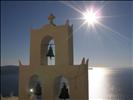

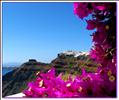
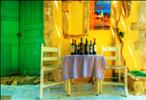




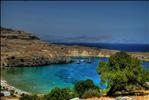
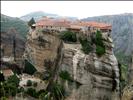




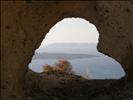








































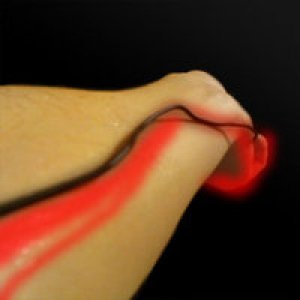





































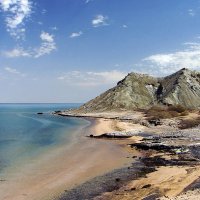











































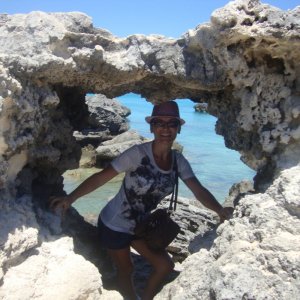





























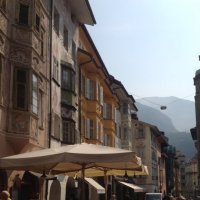







































































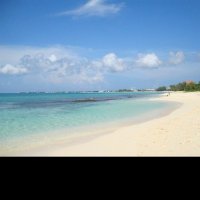












































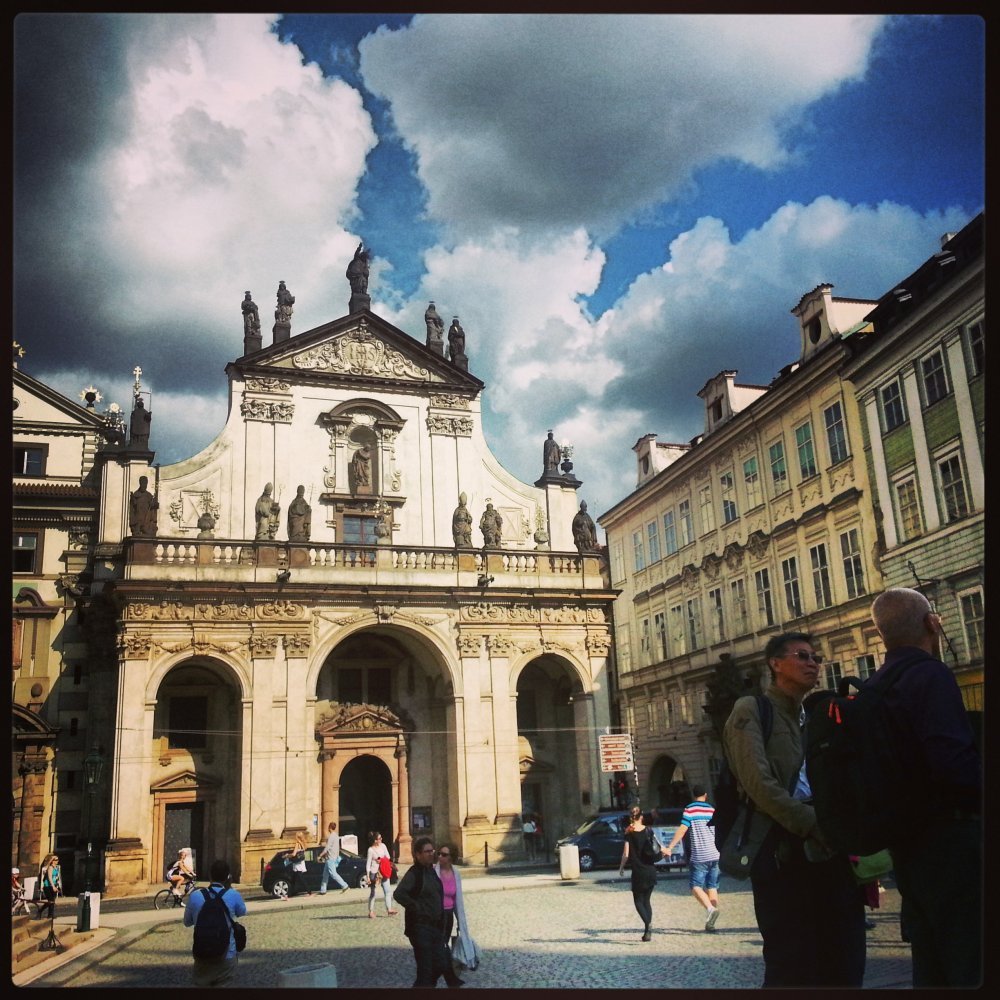



I liked
Been to Corfu Island. Corfu Town is well worth the trip (the old town made the UNESCO World Heritage List in 2007). Promenade the narrow streets beneath the local's laundry hung out to dry. Fortresses are a must, both the old Venetian citadel and the new fortress. Don't miss the Palace of Saints Michael and George (the Senate Room, the Rotunda, the Throne Room are heirlooms of the Ionian Senate era). And check out the Museum of Asiatic Art while you are there, truly impressive.I disliked
Inebriated brit teens raking havon on the streets until the wee hours. All in good fun I guess!